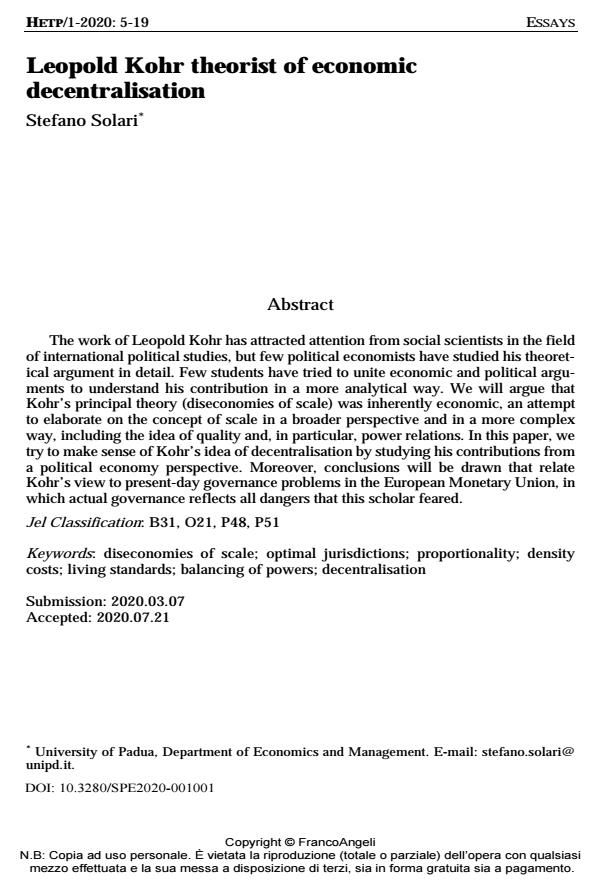Leopold Kohr theorist of economic decentralisation
Titolo Rivista HISTORY OF ECONOMIC THOUGHT AND POLICY
Autori/Curatori Stefano Solari
Anno di pubblicazione 2021 Fascicolo 2020/1
Lingua Inglese Numero pagine 15 P. 15-19 Dimensione file 92 KB
DOI 10.3280/SPE2020-001001
Il DOI è il codice a barre della proprietà intellettuale: per saperne di più
clicca qui
Qui sotto puoi vedere in anteprima la prima pagina di questo articolo.
Se questo articolo ti interessa, lo puoi acquistare (e scaricare in formato pdf) seguendo le facili indicazioni per acquistare il download credit. Acquista Download Credits per scaricare questo Articolo in formato PDF

FrancoAngeli è membro della Publishers International Linking Association, Inc (PILA), associazione indipendente e non profit per facilitare (attraverso i servizi tecnologici implementati da CrossRef.org) l’accesso degli studiosi ai contenuti digitali nelle pubblicazioni professionali e scientifiche.
The work of Leopold Kohr has attracted attention from social scientists in the field of international political studies, but few political economists have studied his theoretical argument in detail. Few students have tried to unite economic and polit-ical arguments to understand his contribution in a more analytical way. We will argue that Kohr’s principal theory (diseconomies of scale) was inherently econom-ic, an attempt to elaborate on the concept of scale in a broader perspective and in a more complex way, including the idea of quality and, in particular, power rela-tions. In this paper, we try to make sense of Kohr’s idea of decentralisation by studying his contributions from a political economy perspective. Moreover, con-clusions will be drawn that relate Kohr’s view to present-day governance problems in the European Monetary Union, in which actual governance reflects all dangers that this scholar feared.
Parole chiave:Diseconomies of scale; optimal jurisdictions; proportionality; density costs; living standards; balancing of powers; decentralisation
Jel codes:B31, O21, P48, P51
Stefano Solari, Leopold Kohr theorist of economic decentralisation in "HISTORY OF ECONOMIC THOUGHT AND POLICY" 1/2020, pp 15-19, DOI: 10.3280/SPE2020-001001